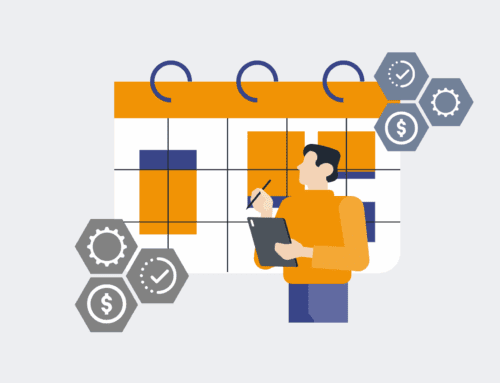HIPAA and Secure Archive Export: What Healthcare Organizations Must Know
The digital age has brought unprecedented efficiency and innovation to healthcare, but with these advancements comes a heightened responsibility: the secure management and protection of patient data. For any organization handling Protected Health Information (PHI), HIPAA isn’t just a guideline; it’s a legal mandate that underpins every data-related operation, including the often-overlooked area of secure archive export. Navigating these requirements demands a clear understanding of the regulatory landscape and robust technical controls.
When healthcare organizations, or any business associate working with them, decide to archive or export PHI, they’re not just moving files; they’re undertaking a critical process that carries significant compliance risks. Whether it’s for long-term retention, system migration, or an audit, the integrity and confidentiality of this sensitive data must remain paramount. A misstep in this process can lead to data breaches, severe financial penalties, reputational damage, and a profound erosion of patient trust.
The Imperative of HIPAA Compliance in Data Archiving
HIPAA, or the Health Insurance Portability and Accountability Act, sets the national standards for protecting sensitive patient health information. Its core pillars—the Privacy Rule, Security Rule, and Breach Notification Rule—directly impact how PHI must be stored, transmitted, and ultimately, archived and exported. The Security Rule, in particular, mandates administrative, physical, and technical safeguards to ensure the confidentiality, integrity, and availability of electronic PHI (ePHI).
Archiving isn’t simply about moving data off active systems; it’s about maintaining its accessibility, readability, and security over extended periods, often decades, as required by law. Exporting data, whether for a one-time transfer or a regular backup, introduces additional vectors for risk if not managed meticulously. Each stage of the data lifecycle, from creation to destruction, must adhere to HIPAA’s stringent requirements. This means understanding not just what data needs to be protected, but how to protect it through every transition.
Key Considerations for Secure Archive Export
When approaching the task of secure archive export, organizations must adopt a multifaceted strategy. It’s not enough to encrypt data; a comprehensive plan involves policy, procedure, technology, and continuous oversight. Here are the crucial elements:
1. Data Identification and Inventory
Before any export, organizations must have a clear understanding of what data constitutes PHI and where it resides. This requires a thorough data inventory. Knowing the types of PHI, its classification (e.g., highly sensitive vs. moderately sensitive), and its original source is foundational. Without this, organizations risk either over-securing non-PHI (inefficient) or, more critically, failing to adequately protect actual PHI.
2. Robust Encryption Protocols
Encryption is non-negotiable for PHI, both in transit and at rest. When exporting data, strong encryption (e.g., AES-256) must be applied to the archived files or databases themselves, and secure communication protocols (e.g., TLS 1.2 or higher for transfer) must be used. Access to decryption keys must be tightly controlled and logged, ensuring that only authorized personnel can ever view the archived information.
3. Access Controls and Authentication
Access to archived PHI must be strictly limited to individuals with a legitimate need. This involves implementing robust authentication mechanisms (e.g., multi-factor authentication) and granular access controls. Audit trails are essential, recording who accessed what data, when, and from where. This provides an indispensable log for compliance audits and incident response.
4. Data Integrity and Auditability
Maintaining the integrity of archived PHI is as important as its confidentiality. Organizations must ensure that exported data remains unaltered and accurate. This often involves checksums, digital signatures, or other validation methods upon export and import. Furthermore, the entire export process—from initiation to successful storage—must be auditable, providing a clear chain of custody and proof of compliance.
5. Secure Storage and Retention Policies
Where archived data is stored is critical. Whether it’s on-premise servers, cloud storage, or an external vendor, the storage solution must meet HIPAA’s physical and technical safeguards. This includes physical security, environmental controls, and robust cybersecurity measures. Retention policies must also be clearly defined, aligned with legal and regulatory requirements, and strictly adhered to, ensuring data is not kept longer than necessary but also not deleted prematurely.
6. Business Associate Agreements (BAAs)
If third-party vendors are involved in any aspect of data archiving or export—such as cloud providers, managed IT services, or specialized archiving solutions—a Business Associate Agreement (BAA) is absolutely mandatory. This legally binding contract ensures that the vendor (the Business Associate) is aware of and commits to upholding HIPAA’s safeguards for PHI.
Beyond the Technical: A Culture of Compliance
Ultimately, secure archive export extends beyond technical solutions; it requires a deep-seated culture of compliance within the organization. Regular training for all staff, clear policies and procedures for handling PHI, and a proactive approach to risk assessment are crucial. Technology provides the tools, but human vigilance and adherence to best practices are what truly safeguard sensitive patient data.
For organizations navigating the complexities of data management and compliance, understanding the nuances of regulations like HIPAA is paramount. While this post focuses on the healthcare sector’s specific requirements, the principles of secure archiving and data integrity are universal across industries dealing with sensitive information. Establishing clear processes, leveraging appropriate technology, and fostering a compliance-first mindset are key to mitigating risk and building trust.
If you would like to read more, we recommend this article: Beyond Live Data: Secure Keap Archiving & Compliance for HR & Recruiting









